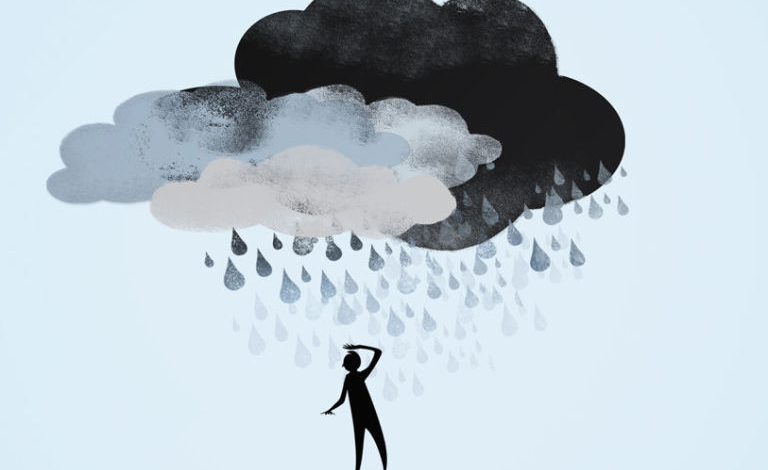Depression: How to Recognize and Handle it Effectively

Understanding Depression
Depression is a widespread mental health problem that affects millions of people throughout the world. It can have a significant impact on your general well-being, relationships, and quality of life. Depression can result from a variety of factors such as if you have a genetic predisposition or family history of depression, you are more likely to experience this condition. Neurochemical imbalances, specifically serotonin, norepinephrine, and dopamine can also become a cause. Certain life events such as the death of a loved one, relationship issues, financial challenges, or traumatic experiences, chronic disease or discomfort, changes in hormone levels throughout pregnancy, the postpartum period, and menopause, or addiction to drugs or alcohol can also lead to depression.
Physical Signs and Symptoms of Depression
Furthermore, depression also comes with some cognitive and physical signs and symptoms such as the following:
- Feelings of sadness, emptiness, or hopelessness that persist
- Loss of interest or pleasure in previously appreciated activities
- Changes in appetite and weight (gain or decrease)
- Sleep problems (insomnia or excessive sleep)
- Fatigue or energy deficit
- Difficulty concentrating, making decisions, or recalling information
- Worthlessness, guilt, or self-blame
- Irritability or restlessness
- Headaches, stomach problems, and inexplicable aches and pains
- Suicidal or death-related thoughts
It’s crucial to realize that experiencing a couple of the above signs does not always indicate clinical depression. However, if these symptoms remain and impair everyday activities for an extended period, they may be signs of depression. If you or someone you know suffers from these symptoms, it is best to get professional assistance for a correct diagnosis and treatment.
Various Treatments for Depression
There are different ways these symptoms can be treated depending on their intensity and severity. Often times, talk therapies are the best course of action, along with some self care and lifestyle changes. Other times when the condition is severe, medication may be prescribed. Psychotherapy, such as cognitive-behavioral therapy (CBT) or interpersonal therapy (IPT), is an effective therapeutic option for depression.
Psychotherapy explores how your past experiences, including childhood experiences, impact your current emotions and behaviors. You can attempt to alleviate depression symptoms by obtaining insight into unconscious tendencies and unresolved issues.
Cognitive-Behavioral Therapy CBT is a commonly utilized and evidence-based depression treatment. It focuses on identifying and changing negative thought patterns and behaviors with more positive and adaptable ones. CBT can assist you in developing coping skills and strategies for effectively managing depression symptoms.
Interpersonal Therapy IPT focuses on enhancing interpersonal connections and addressing specific depression symptoms. It can help you in identifying and managing conflicts, grief, role shifts, or social isolation that may be contributing to your depression symptoms.
Therapist may prescribe some medication in certain circumstances to treat depression. Selective serotonin reuptake inhibitors (SSRIs) are antidepressant drugs that can assist in regulating brain chemistry and decreasing symptoms. Before beginning or terminating any drug, it is critical to consult with a healthcare expert.
Self-Care
Exercising regularly has been demonstrated to improve mental health by raising mood, lowering symptoms of depression, and promoting overall well-being. Include activities like walking, jogging, yoga, and dance in your schedule. Maintaining a healthy diet and feeding your body with nutritious foods might improve your mental health. Incorporate fruits and vegetables, whole grains, lean meats, and healthy fats into your daily diet. Avoid eating too many sweet or processed meals. Try deep breathing exercises, meditation, progressive muscle relaxation, or taking soothing baths to help you relax and reduce stress. Establish a regular sleep regimen and a sleep-friendly atmosphere to ensure adequate sleep. Each night, aim for 7-9 hours of quality sleep. Avoid stimulants such as caffeine near bedtime, and minimize your exposure to electronic gadgets before bed.
Changes in Lifestyle
Set attainable objectives by dividing activities into smaller, more doable chunks and acknowledge your accomplishments along the way. Avoid setting unrealistic goals for yourself. Reduce stress by identifying and addressing stressors in your life. Look at stress-reduction strategies such as time management, prioritization, and boundary-setting. Create a habit by having a defined daily routine might help you feel more stable and purposeful. Include activities that you find enjoyable. Substance abuse might increase depression symptoms. Avoid or minimize the use of alcohol, drugs, and other substances known to harm mental health. Create a support network by surrounding yourself with people who are encouraging and understanding. Share your thoughts and feelings with trusted friends, family, and support groups.
Alternative Therapies
Acupuncture, aromatherapy, and massage therapy can help relieve tension, promote relaxation, and complement other therapeutic modalities. However, it is critical to check with doctors who are knowledgeable about these methods. Try expressive arts therapy by participating in creative activities such as painting, writing, or music can give an outlet for self-expression and emotional processing. Ecotherapy that includes spending time in nature, whether gardening, hiking, or simply being outside, has been proven to have positive impacts on mental well-being and maybe a peaceful and refreshing experience. Remember that the success of these strategies will vary depending on the individual, therefore it is critical to identify what works best for you. Combining various treatments and seeking advice from mental health specialists can improve the efficacy of these strategies in treating depression.
Key Takeaways
Depression is a complicated disorder that needs to be identified, understood, and properly managed. You can effectively manage depression and enhance your overall well-being by recognizing the signs and symptoms of depression, seeking professional support, and applying practical measures for self-care and lifestyle changes. Remember that no one needs to endure depression alone, and there is treatment available to help you navigate the road to recovery.




